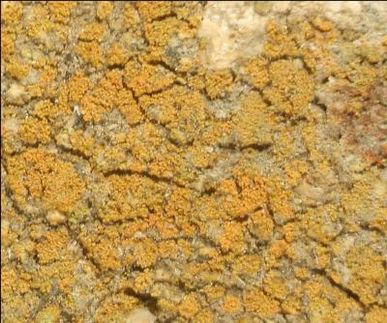A new way to use herbicides: To sterilize, not kill weeds
Using herbicides to sterilize rather than to kill weedy grasses might be a more economical and environmentally sound weed control strategy, according to a study by Agricultural Research Service (ARS) scientists and a cooperator.
Rangeland ecologist Matt Rinella at the ARS Fort Keogh Livestock and Range Research Laboratory in Miles City, Mont., conducted the study with colleagues at Miles City and Robert Masters with Dow AgroSciences LLC, in Indianapolis, Ind.
Exotic annual grasses such as Japanese brome, cheatgrass and medusahead are harming millions of acres of grassland in the western United States. Currently, the herbicides used to control these invasive grasses also sometimes damage desirable perennial grasses.
In contrast, when used properly, growth regulators typically do not greatly harm desirable perennial grasses. Growth regulator herbicides are used to control broadleaf weeds in wheat and other crop grasses, as well as on rangelands. Rinella and his colleagues knew that when dicamba and other growth regulator herbicides were applied to cereal crops late in their growth stage, just before seed formation, the plants produced far fewer seeds.
The scientists decided to see if these herbicides had the same harmful late-stage application effects on the invasive weed Japanese brome. In greenhouse experiments, they tested dicamba (Banvel/Clarity), 2,4-D, and picloram (Tordon) at typically used rates. They found that picloram reduced seed production nearly 100 percent when applied at the late growth stage of the weed. Dicamba was slightly less effective, but still nearly eliminated all seed production, while 2,4-D was much less effective.
Since annual grass seeds only survive in soil a year or two, it should only take one to three years of herbicide treatment at the right growth stage to greatly reduce the soil seed bank of annual weedy grasses without harming perennial grasses.
Rinella has recently finished field tests that support the greenhouse experiment results. He also tested the herbicide aminopyralid (Milestone) and found it was as effective as picloram. Next he will test much lower doses of the herbicides in an attempt to lower costs and reduce non-target damage to broadleaf plants.
The research was published in the journal Invasive Plant Science and Management .
Organizations
Other news from the department science

Get the life science industry in your inbox
By submitting this form you agree that LUMITOS AG will send you the newsletter(s) selected above by email. Your data will not be passed on to third parties. Your data will be stored and processed in accordance with our data protection regulations. LUMITOS may contact you by email for the purpose of advertising or market and opinion surveys. You can revoke your consent at any time without giving reasons to LUMITOS AG, Ernst-Augustin-Str. 2, 12489 Berlin, Germany or by e-mail at revoke@lumitos.com with effect for the future. In addition, each email contains a link to unsubscribe from the corresponding newsletter.



















































